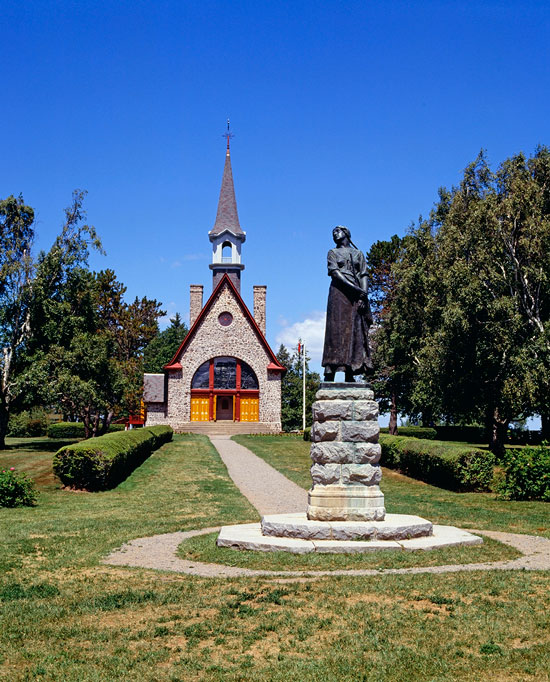 The number and diversity of Nova Scotia's postsecondary institutions reflect the cultural, linguistic, and religious diversity of the province's early European settlers. The University of King's College was established in 1789 by United Empire Loyalists who settled in Nova Scotia after fleeing the rebelling colonies to the south. King's was modeled on Oxford University in England and was designed to reinforce British and Anglican traditions and values. In 1818, Lieutenant Governor Lord Dalhousie created a new institution, the future Dalhousie University, along the lines of the University of Edinburgh, to counter the religious restrictions and elitism he found at King's.
The number and diversity of Nova Scotia's postsecondary institutions reflect the cultural, linguistic, and religious diversity of the province's early European settlers. The University of King's College was established in 1789 by United Empire Loyalists who settled in Nova Scotia after fleeing the rebelling colonies to the south. King's was modeled on Oxford University in England and was designed to reinforce British and Anglican traditions and values. In 1818, Lieutenant Governor Lord Dalhousie created a new institution, the future Dalhousie University, along the lines of the University of Edinburgh, to counter the religious restrictions and elitism he found at King's.
Other universities, most with denominational affiliations, were created throughout the nineteenth century. Acadia University was established by the Baptists in 1838. The province's Irish, Scottish, and French Roman Catholic communities founded Saint Mary's University, St. Francis Xavier University, and Université Sainte-Anne in 1841, 1853, and 1890 respectively.
Mount Saint Vincent was started as an academy by the Sisters of Charity in 1873. The original purpose was to train novices and sisters as teachers, but the Mount soon evolved into an independent women's university providing higher education for other women. In 1966 a new charter changed the Mount's name from Mount Saint Vincent College to Mount Saint Vincent University. Male students were first admitted in 1967, and today women still represent the majority of the enrolment. Almost half of the students attend part-time.
The Atlantic School of Theology (AST) was founded in 1971 and is the result of the amalgamation of three faculties (Anglican, Roman Catholic, and United Church of Canada) into one ecumenical school to serve the Atlantic Region. Other Christian denominations are also represented. In March 2002, AST and Saint Mary's University signed a memorandum of agreement affiliating the two institutions.
The Nova Scotia College of Art and Design was founded in 1887 by Anna Leonowens as an artistic enterprise to commemorate Queen Victoria's Golden Jubilee. The university did not receive degree-granting status until 1969.
The Nova Scotia Agricultural College was established in 1905 as a small, regional school of agriculture and has evolved to become Atlantic Canada's agricultural teaching and research institution.
The Technical University of Nova Scotia, which traced its history to 1907, was amalgamated with Dalhousie University in April 1997.
Nova Scotia Community College was established in 1996 as a result of merging the existing vocational and technical institutions in the province. Collège de l'Acadie was also established in 1988 to provide training in the French language for Nova Scotia's Acadian/French population. In 2002, Collège de l'Acadie merged with Université Sainte-Anne and is now one university college institution — Université Sainte-Anne.